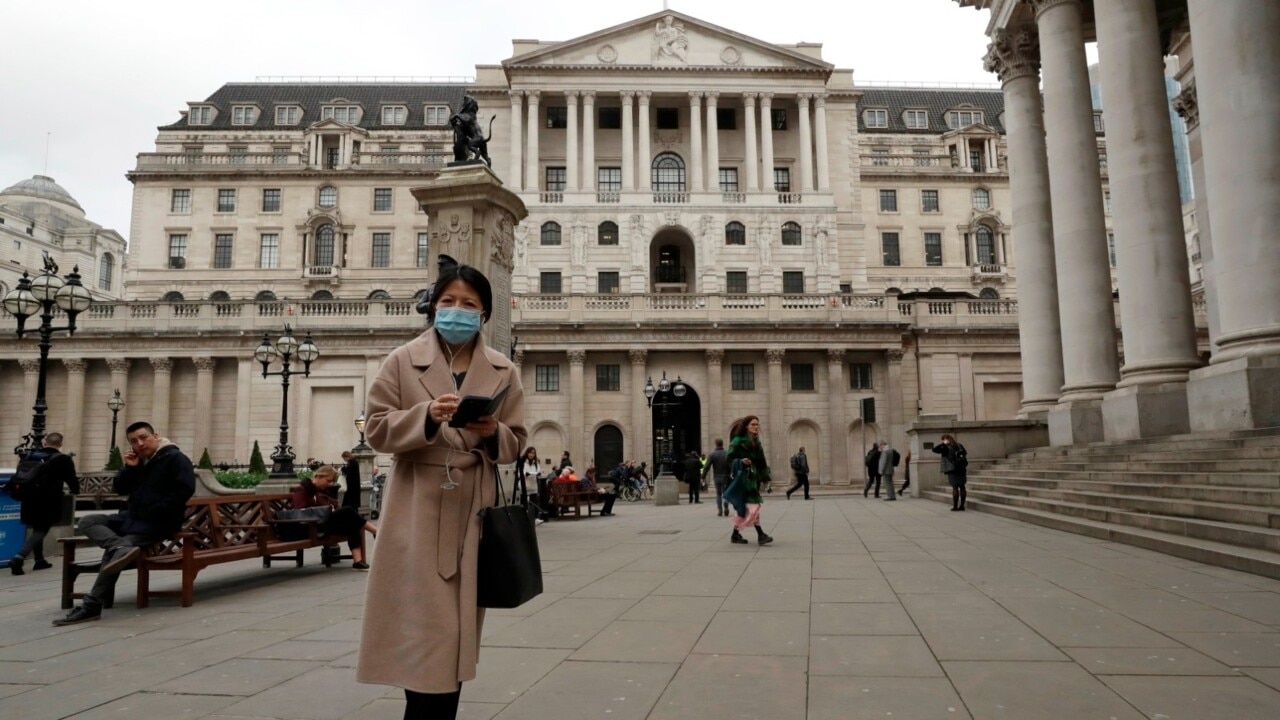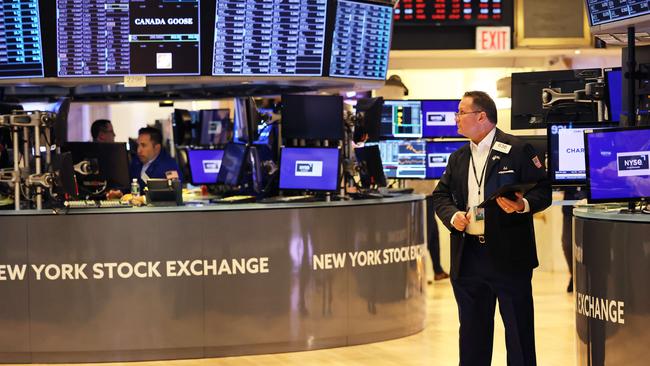
Global money markets had just taken the US 10 year bond rate to four per cent, which was a threat to western world economies. Many UK banks had earlier suspended all housing loans as the sense of panic spread.
Money market operators were about to trash the UK economy by dumping UK government and bank bonds. Unchecked, it would take years to recover. Australia’s problem is a mirror image of the UK, and markets knew we would be next.
The AUKUS alliance was about to see two of its partners indirectly trashed by the actions of the US Federal Reserve chief Jerome Powell. The predictions I made in yesterday’s commentary entitled “Powell’s power may unleash havoc or recovery” were coming true with a speed that stunned me. But the reactions in the UK and US to the looming crisis were swift and military like.
The UK central bank began buying British bonds, and the unofficial word from the Federal Reserve that big rate rises were inevitable changed dramatically. That triggered a rush of buying of US bonds, and the yield fell from four to 3.7 per cent – the biggest drop in two years. Shares on Wall Street rose almost two per cent. For the moment the crisis was averted, but I must warn readers that a one-day battle victory does not change the economic war and the underlying crisis could quickly re-emerge.
Most Australians were blissfully sleeping, unaware of our peril. It’s vital that our central bank, the new government and the Australian community understand why we are in a similar mess to the UK if the Federal Reserve keeps increasing interest rates. We must also wake up to the dangers being created by appalling tax administration in both the UK and Australia.
At the heart of the crisis is the two currencies. When September 28 dawned in the UK, the pound was down around 21 per cent against the US dollar since the start of the year. The Australian dollar had fallen around 15 per cent, but over a shorter period. So, let’s isolate the duplications that were behind the currencies’ falls.

*Both countries are planning major tax cuts. The tax reductions were a key part of the platform of new Prime Minister Liz Truss to stimulate the UK economy.
In Australia, they have been legislated by the previous government but endorsed by the new ALP government. UK tax rates are higher than Australia so to some extent they are coming into line, but in both countries the money market traders (plus the IMF in the UK) are horrified because they see these actions as the height of irresponsibility. They have been trashing fixed interest securities in both countries, including the CBA bonds, so boosting non deposit bank borrowing costs.
*Unlike the US, both the UK and Australia fund their domestic housing market on flexible interest rates or very short-term fixed rates. In the US, mortgages holders are protected from interest rate rises, but both in the UK and Australia they bear the full brunt of any rises.
In Australia, unique in the world, our banks went on a mortgage lending spree when rates were low, so our consumers will be hit even harder than the UK if Jerome Powell keeps lifting US rates, and we are forced by the currency market to follow.
*The biggest home lender CBA has warned the nation that any increase in official interest rates above 1.25/1.5 per cent will hit hard both mortgage borrowers and the nation. We have already lifted rates past that crunch level and plan further rises
In the UK, panic erupted amongst the banks as their fixed interest securities were dumped, forcing many banks to suspend home lending and illustrating the danger to Australia. Until September 28 the market was demanding the UK lift its official rate to 6 per cent, which would have triggered forced selling of houses. The Australian crisis has not yet gone that far, but already a large number of those mortgage holders that participated in the mortgage lending spree now owe more on their dwelling than the dwelling is worth.
*Both countries have massive gas reserves, but there are artificial shortages and spiralling prices. Truss is now planning a major fracking program to release the UK gas, but the lower costs benefit will not emerge for 18 months to 2 years. But during the next UK election she will be able to promise substantial falls in gas and power prices which will curb inflation.
The new UK government believes the tax cuts will help consumers bridge the time gap. In Australia, and particularly in Victoria, there are enormous on shore low cost gas reserves that do not require fracking and can be made carbon-neutral. But the Victorian government refuses point-blank to develop them, which forces up inflation and therefore interest rates. The Truss promise to relieve the energy price pain was a big factor in her gaining the prime ministership.
*Another big factor in her victory was the deep unpopularity of the former chancellor (Treasurer) and prime ministerial candidate Rishi Sunak, who almost enjoyed making life as difficult as possible for family enterprises and contractors.
Unlike former Australian treasurer Josh Frydenberg, Sunak gave family contractors no help in the Covid-19 crisis, and he encouraged the UK tax department to make their life as miserable as possible. In the case of the UK, that misery was compounded by legislation, whereas in Australia the Australian Taxation Office adopted similar strategies without legislation.
The contractors delivered Truss the Prime Ministership, and she responded by changing the dreaded tax laws as one of her first actions. Both in Australia, the UK attacks on family business and contractors by tax officials has substantially reduced productivity and contributed to higher inflation.
*The UK still has Sunak legislation, which requires payments to be made to contractors for so-called holiday and other so-called “entitlements”. But of course, it doesn’t work because it either boosts contract prices or more often forces contractors to accept less cash – cash they need because their full time jobs don’t cover cost of living rises. But our new government seems set to follow the UK disaster in this area.
The UK prime minister believes she can tough out the interest rate increases, and currency fall via the tax cuts and later cheaper energy plus the higher productivity and revenue that is achieved once a US style proper UK taxation system is introduced. It is important that the Australian treasurer spend time in the UK, so he can determine what we should do and what we should not do.






As the New York morning markets of September 28 dawned, the drama inside the US Federal Reserve and government administration was intense.